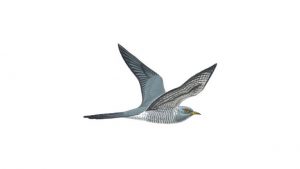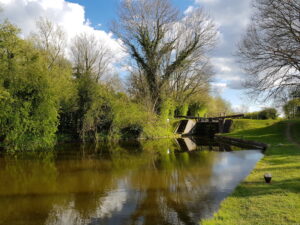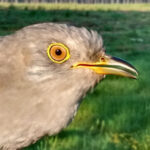‘The cuckoo then, on every tree,
Mocks married men; for thus sings he,
“Cuckoo;
Cuckoo, cuckoo!” O, word of fear,
Unpleasing to a married ear!’
(When Daisies Pied and Violets Blue –
William Shakespeare)
So, where is the cuckoo?
We go back a long away, the cuckoo and us.
When we we moved into our house on the edge of the village in SE England 30 years ago, this wayward parent was an ever present force of nature throughout May and June. We didn’t count, because we didn’t need to, but scarcely a day passed without us hearing it, somewhere over the fields. One famous day two flew together over our garden.
I’m reluctant to draw a line under those days, and I still await some miraculous second coming. But I must be realistic. The cuckoo been intermittent or absent altogether since 2011, and every year it’s a question of “Will we ever?”, rather than “Will we this year?”
Before we jump to unscientific conclusions, let’s consult the BTO (British Trust for Ornithology) the leading authority on the bird in the UK. Since 2011 the trust has been tracking cuckoos fitted with tiny transmitters. It knows exactly where they overwinter, in the forests of central Africa, and tracks them coming back.
“We have lost over half of our breeding cuckoos during the last twenty-five years,” says the trust. “Populations of many UK breeding migrant species are declining; however, there is little known about the mechanisms of these declines.
“Climate change is causing the timings of the spring season to change and there is evidence that many migrant species are not advancing their arrival times sufficiently to track the earlier spring.”
One theory is that the cuckoos, and their progeny, are not returning here because the birds whose nests they use, meadow pipits, dunnocks and reed warblers, are in decline, or because their breeding season no longer coincides with that of the cuckoo, due to a changing climate. Have these birds finished feeding their offspring before the cuckoos arrive to eject them from the nest? Finding no nests in which to lay their eggs, do the cuckoos simply move on?
Where I live we we could, most years, time the arrival of the cuckoo to the third or fourth week of April – April 20th seemed to be the favoured day. Thereafter the call of the cuckoo was a springtime certainty. I wondered what it must be like for my friends in London to hardly ever hear the cuckoo in spring. Weren’t we the fortunate ones, out in the countryside?
Then things changed. In 2011 or 2012 the cuckoo arrived very late, and called a few desultory times. In 2013 I heard it only once. It was in 2014 that I didn’t here it at all from our garden. In 2015, there was one call. One year I only heard it from a tent in a field at the Hay Festival. We heard the cuckoo twice in my village in 2020.
Cuckoos return to the area where they were born, so it is likely that several, and possibly multiple, generations in the same lineage come back to our local jumble of uncultivated fields and hedges and woodland around the Grand Union canal.
Habitat loss is often a reason for the decline of species, but there are no physical changes to explain its absence here, no new housing estate built where they used to be, no switch to intensive agriculture, although fields close by in another direction are treated with the usual cocktail of chemicals. And have been since we lived here.
In fact, there is no smoking gun. Climate change is a strong enough suspect for the BTO to put it on its the Cuckoo Project webpage, although it adds – “there is is also some suggestion from previous studies that there are constraints in the migration timing of species wintering in or beyond the humid zone in Africa.”
And there are certainly cuckoos in the British countryside this spring and summer. The BTO reported the arrival of “PJ” on 24 April – “After five years and a staggering 50,000 miles, Suffolk Cuckoo PJ has once again returned from Africa to his breeding grounds in the King’s Forest, Suffolk. He is the first of our tagged Cuckoos to survive five complete migrations with his tag still functioning.”
And there is evidence from the BTO/JNCC/RSPB Breeding Bird Survey that cuckoos are doing better in some areas of the country than in others, with the decline in England (68%) being greater than in Scotland and Wales.
In our everyday lives, it’s hard to point to specific things and say –”Yes, for sure, that change or adverse result is due to climate change, and it’s impacting on me in some real enough way that makes a difference.” Is the absence of the cuckoo possibly one the the first concrete examples of the global heating deficit in the countryside?
Since writing this piece, I’ve heard, through Facebook, of several people hearing one and possibly more cuckoos during May on the Kenfig National Nature Reserve in South Wales and several nearby places.
https://www.bto.org/our-science/projects/cuckoo-tracking-project/about-project



